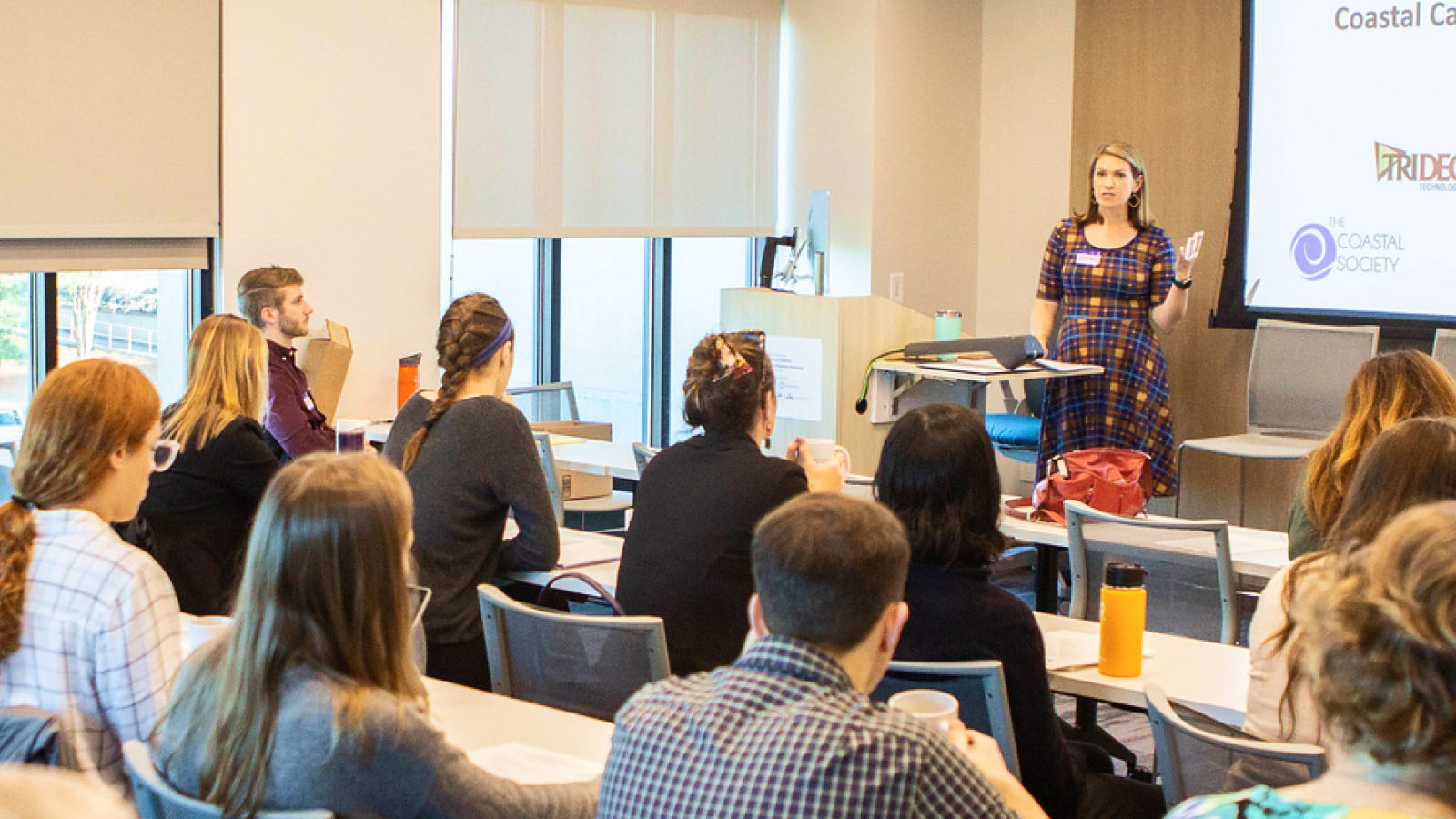Description
This series builds foundational knowledge about funding and financing approaches used to support coastal resilience activities. Learn from experts, who will demystify this complex topic by sharing traditional and emerging approaches, project examples, and lessons learned, and by answering your questions.
Register for an upcoming live webinar here.
- Webinar 1: The Basics
- Webinar 2: Spotlight on Environmental Impact Bonds
- Webinar 3: Spotlight on Community Development Financial Institutions
- Webinar 4: Spotlight on Building Capacity in Communities to Access Funding
- Webinar 5: Spotlight on Stormwater Credit Trading
- Webinar 6: Spotlight on Revolving Loan Funds
Learning Outcomes
- Distinguish between basic funding and financing approaches for implementing coastal resilience projects
- Generate ideas for overcoming common challenges associated with financing resilience projects
- Access resources to identify and support funding and financing approaches
Recordings
-
Webinar 1: The Basics

April 6, 2021
Learn from experts about options for funding and financing coastal resilience projects. This is the first training in the series and provides the foundation for future trainings on this topic. Hear project examples and lessons learned to apply to your own situation.
Speakers:
- Kim Penn, Climate Coordinator, NOAA Office for Coastal Management
- Leigh Whelpton, Program Director, Conservation Finance Network
- Erik Meyers, Vice President, Climate and Water Sustainability, The Conservation Fund
-
Webinar 2: Spotlight on Environmental Impact Bonds

June 22, 2021
Experts in this field discussed using Environmental Impact Bonds to finance coastal resilience efforts. They provided an overview of these bonds, how one was developed to finance coastal resilience efforts in Hampton, Virginia, and lessons learned throughout the process.
Speakers:
- Kim Penn, Climate Coordinator, NOAA Office for Coastal Management
- Jason Lee, Quantified Ventures
- David Imburgia, City of Hampton, Virgina
-
Webinar 3: Spotlight on Community Development Financial Institutions

February 1, 2022
Experts from the field share how Community Development Financial Institutions (CDFIs) are helping economically disadvantaged communities build their resilience. This training is part of an informational series focused on funding and financing options for coastal resilience projects. Check out our quick reference, Funding and Financing: Options and Considerations for Coastal Resilience Projects.
Speakers:
- Kim Penn, Climate Coordinator, NOAA Office for Coastal Management
- Jeff Merkowitz, Senior Advisor, CDFI Fund
- Adam Zimmerman, CEO, Craft3
- Keith Bisson, President, Coastal Enterprises, Inc
-
Webinar 4: Spotlight on Building Capacity in Communities to Access Funding

June 21, 2022
In many coastal communities, particularly those that are small or under-resourced, it can be difficult to identify, access, and administer the funding necessary to invest in coastal resilience. Don’t miss this opportunity to hear about recent research on challenges from two organizations working with communities to overcome these barriers to funding and financing resilience projects.
Speakers:
- Dr. Angela Chalk, Executive Director, Healthy Community Services
- Rachel Jacobson, Deputy Director, American Society of Adaptation Professionals
- Lauren Long, Pacific Learning Services Coordinator, NOAA Office for Coastal Management
-
Webinar 5: Spotlight on Stormwater Credit Trading

January 11, 2023
Experts from the field share information on stormwater credit trading as a financing strategy for coastal resilience projects.
Speakers:
- Jeff Odefey, Director of Water Policy, One Water Econ
- Jen Jenkins, Natural Infrastructure Project Manager, The Nature Conservancy Chicago Urban Conservation
- Ryan Wilson, Manager of Water Resources, Metropolitan Planning Council
-
Webinar 6: Spotlight on Revolving Loan Funds

May 16, 2023
Revolving Loan Funds, often administered through state revolving funds, have been a hallmark mechanism for providing low-interest loans to local communities and other entities for infrastructure projects. Such funds are commonly associated with drinking water infrastructure, but as climate change impacts become more pronounced, state revolving funds have emerged as a valuable tool in funding projects that enhance coastal resilience through habitat restoration and other nature-based solutions. By providing flexible, low-cost funding to communities, state revolving funds can help to facilitate the implementation of climate-resilient infrastructure and enhance community resilience to coastal hazards.
Speakers:
- Alison Souders, Environmental Protection Agency's Office of Wastewater Management
- Rhiannon Kincaid, FEMA’s Safeguarding Tomorrow Revolving Loan Fund
- Michael Roberts, The Coastal Trust
